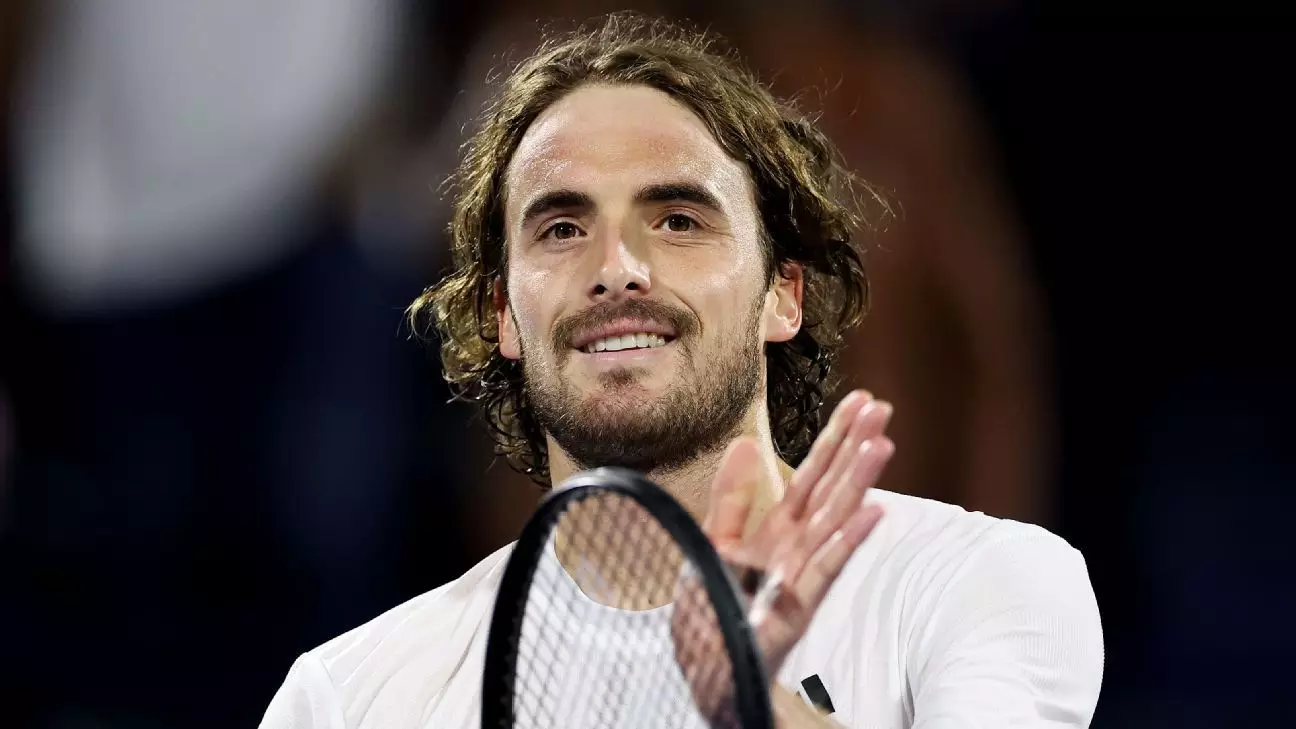In a sport dominated by high-profile coaching changes and ever-evolving strategies, Stefanos Tsitsipas’s decision to re-engage with his father Apostolos as his coach marks a profound shift rooted in personal trust and emotional stability. This choice underscores a vital truth often overlooked in professional tennis: true growth often springs from a return to origins rather than relentless pursuit of external solutions. Tsitsipas’s career has been a stark reflection of inconsistency, with high peaks like his French Open and Australian Open runner-up finishes, contrasted sharply by disappointing performances that have seen him drop to 30th in the world rankings. The short-lived partnership with Goran Ivanisevic, despite the Croatian’s legendary coaching pedigree, failed to produce the desired momentum, exposing the fragile nature of reliance on external influences for mental and strategic reinforcement. Now, by choosing to rekindle the relationship with his father, Tsitsipas emphasizes the importance of personal belief, unwavering loyalty, and the comfort derived from familiar territories—both emotional and tactical—in an era where such qualities are increasingly undervalued.
Lessons from the Backlash: The Cost of External Validation
The recent coaching departure comes against a backdrop of critical public assessments—most notably Ivanisevic’s condemnatory remarks about Tsitsipas’s mental preparedness at Wimbledon. Such comments, while perhaps valid from a technical perspective, highlight a broader epidemic of external validation diminishing the athlete’s self-awareness. Tennis, a mental battleground as much as it is physical, tests players’ resilience, focus, and confidence. Tsitsipas’s struggles—manifested in early exits and a decline in rankings—are indicators not just of technical flaws but of a deeper vulnerability, often rooted in self-doubt amplified by external criticism. His social media acknowledgment that “some journeys have a way of circling back to where they began” indicates an internal recognition that true strength and clarity come from within, not external coaching personalities or strategies. By reconnecting with his father, Tsitsipas appears to be seeking a return to the core of his identity, reminiscent of a time when he felt more grounded and in control. Such a move is not a sign of weakness but an act of strategic self-preservation aimed at fostering confidence, stability, and long-term growth.
The Power of Authentic Relationships in a Competitive Sport
In professional tennis, where fame and fortune often overshadow genuine relationships, Tsitsipas’s emphasis on his father’s long-standing support is a powerful reminder of the importance of authentic connections. His social media message echoes a sentiment that transcends sport: the value of loyalty, trust, and emotional safety. Having personal relationships as a foundation can serve as an anchor when the tides of performance threaten to overwhelm a player. Tsitsipas’s journey underscores that champions are not solely crafted on courts or through elite coaching; they are forged through resilience, self-awareness, and meaningful bonds. His decision to reunite with his father signifies a deliberate acknowledgment that true mastery requires inner strength bolstered by the people who know him best. As he navigates the turbulent waters of professional tennis, turning inward and reconnecting with his roots might prove to be the catalyst that propels him toward a more consistent and fulfilling chapter in his career.
Challenging the Status Quo: Personal Growth in a High-Pressure Environment
Tsitsipas’s career trajectory illustrates the perilous nature of relying solely on external validation and the allure of high-profile coaching stints. His brief partnership with Ivanisevic, despite the Croatian’s illustrious record, failed to yield sustainable success—highlighting that coaching alone cannot compensate for internal doubts or unresolved psychological hurdles. His comeback, rooted in personal authenticity, challenges the rigid framework of modern tennis, emphasizing that genuine progress often demands introspection and a return to genuine sources of inspiration. In a sport where victory often feels fleeting and rankings can plummet overnight, Tsitsipas’s choice reflects a resilient mindset: that true growth involves confronting internal fears, embracing personal history, and cultivating confidence from within. This approach not only humanizes him but also sets a compelling example: success is more durable when built on self-trust instead of transient external validation. As Tsitsipas prepares for future challenges, this renewed focus on personal foundations could become his strongest asset, reminding high-level athletes everywhere that resilience begins with embracing who they truly are.

